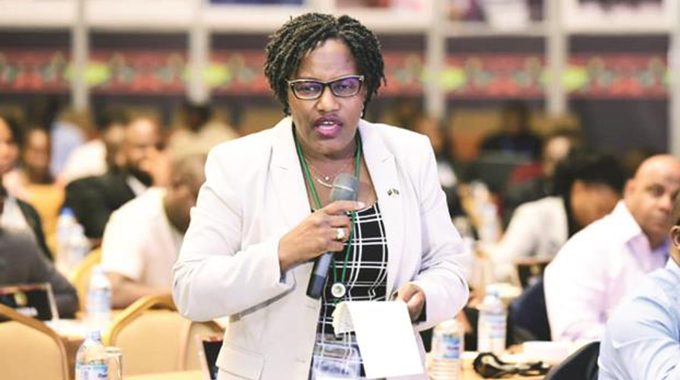Court delays frustrate Zimra

Prosper Ndlovu in Kampala, Uganda
Delinquent taxpayers can win long delays before being forced to pay, as the Zimbabwean court process is very lengthy, frustrating the Zimbabwe Revenue Authority.
Zimra commissioner-general Ms Faith Mazani has expressed concern over these delays which have been a factor in building up the mountain of $4 billion in unpaid taxes her authority is trying to collect.
Speaking during a panel discussion on the impact of digitalisation on taxation at the ongoing 4th International Conference on Tax in Africa here yesterday, Ms Mazani said although Zimra has taken several tax cases to court, the legal process has been slow.
With minimal results from moral persuasion towards voluntary clearance of the debts, some of the cases have been taken to court as the authority seeks to recover the funds.
“We have taken many cases to court, but do they have the capacity to handle them?
“We have about $4 billion in tax debts, but courts take more time to resolve these,” said Ms Mazani.
“For instance, we have a case with an international e-commerce company, but it is dragging. Should it go to an international court? Are we going to be able to tackle it?”
Ms Mazani said increased political will was needed towards capacitating the tax authority to acquire requisite technical infrastructure to fulfil its mandate, especially at a time when the economy was embracing digital transactions, which come with unique compliance challenges.
She said efficient tax administration was also being blighted by corruption and conflict of interest, which exposes lack of integrity even among officials at higher levels.
Ms Mazani lamented the weak bargaining power in the negotiation of certain public contracts, which often exclude taxation components, but would have been signed by policy makers.
This deprives the economy of the critical revenue it needs to grow, she said.
Ms Mazani, who is among the top regional panellists discussing the impact of digitalisation on taxation in Africa, said despite the challenges, digitalisation presented an opportunity to tap into relevant data using the audit trail from transactions.
This needs increased investment in capacity building to fully use the emerging technologies so as to improve tax systems across Africa.
“Zimbabwe was already grappling with the digital economy reality and measures were being put in place in response,” said Ms Mazani.
She noted that recent cash shortages and currency volatility in the country had opened floodgates for digital innovations as society seeks alternatives.
Ms Mazani made reference to aggressive digital business innovations through products such as Econet’s Vaya logistics, mobile money, online shopping and others, which have virtually taken space in all spheres of life from health, agriculture and remittances.
Other businesses have also grabbed opportunities across the board in a bid to expand market and consumer convenience.
In view of this, Ms Mazani said Zimra needed more support in getting equipment and setting up proper digital infrastructure, and to develop and recruit skilled technical personnel to tap into the vast digital data for tax purposes.
She said Zimra had successfully implemented the digital fiscalisation programme, but was not in a position to fully use the data in view of technical constraints.
Ms Mazani said the country’s revenue performance level remained on the positive side ahead of others in the region given that the country made surpluses this year.
She said the two percent tax on digital transactions had become helpful in widening the tax base and bridging the compliance gap in the informal sector.
The African Tax Administrators’ Forum (ATAF) is hosting the conference, which coincides with the origination’s 10th anniversary, and runs under the theme: “Innovation— Digitalisation and Harnessing Technology to Improve Tax Systems”.







Comments